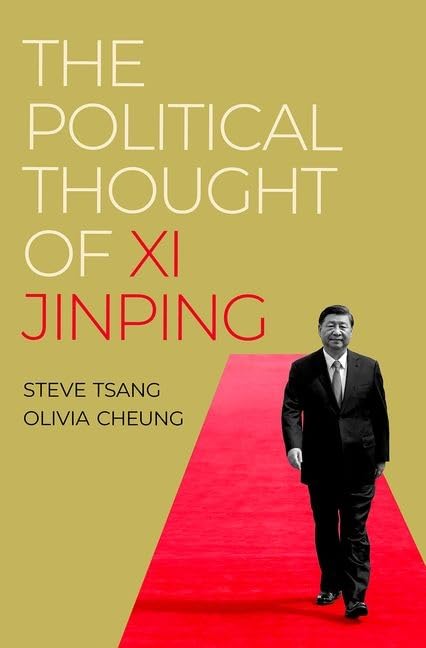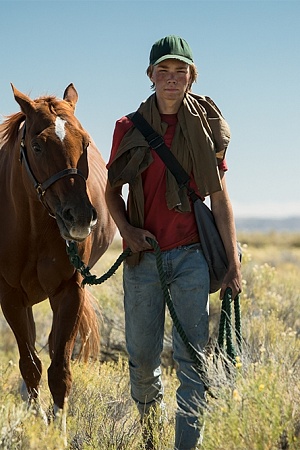Fremont

Like each of the Iranian-British director Babak Jalali’s films to date, Fremont deals with the felt effects of geographical dislocation. Specifically, it follows the story of Donya (Anaita Wali Zada), an Afghan refugee and former translator for the US military. Settling in Fremont, California, she lives alone and works at a fortune cookie factory, trying to adapt to new surroundings while working through her difficult past. Like her friend’s baby next door, Donya is having trouble sleeping, although her insomnia is caused by guilt-induced PTSD and the sense that she has betrayed the Taliban by working for the enemy. She is able to see a psychiatrist (Gregg Turkington), but before prescribing her the sleeping pills she desires he wants to know more about the causes of her problems. Although she makes a good friend in the factory (Hilda Schmelling), Donya’s past traumas make it hard for her to engage romantically with anyone in her adopted homeland. But when she is promoted as the writer of cookie fortunes, Donya finds a renewed sense of purpose, and her own fortunes begin to look brighter.
Jalali’s film gives us a picture of migration in the current moment, with new diasporas emerging thanks to new wars, and different configurations of displaced neighbours coming together for the first time across the world. The movements of people around the globe are complex, and the process of assimilation is hardly straightforward. We see different aspects of this reality in Fremont. For instance, Donya explains to her psychiatrist that she chose to work in San Francisco proper rather than Fremont (a near anagram of ‘fortune’) since this would allow her to spend some time away from the Afghan community of the Bay Area and to get to know some people from China, a country that shares a land border with her birthplace. But the Chinese couple in charge at the factory don’t hold Donya in high regard and she is unsure of her place in the world outside of Afghanistan.
Seen from another perspective, this film about the experience of migration is also about the place in the world of Jalali’s film itself, and begs the question: how close can a movie travel towards Park City, Utah, without slipping into the expected rhythms of American indie cinema? Or, to avoid being obtuse: can a film that premières at the Sundance Film Festival lead its director down the road of other Sundance successes while enabling him to preserve his own vision? Jalali has openly acknowledged the influence on Fremont of another black-and-white Sundance début, Jim Jarmusch’s Stranger Than Paradise (1984). Another festival hit, Hal Hartley’s Trust (1990), also comes to mind here. Jalali’s previous films all premièred in Europe at festivals like Locarno, Rotterdam, and Berlin, but this latest work marks a westward trajectory, and the results seem clear. There is still some of the absurdist humour of Radio Dreams (2016), his film about the guest appearance of Metallica on an Iranian radio station, and still the languid long takes of the far more serious Land (2018), about a Native American family coping with the loss of a son who died while on active service in Afghanistan.
 Anaita Wali Zada as Donya (courtesy of Mushroom Studios)
Anaita Wali Zada as Donya (courtesy of Mushroom Studios)
By comparison, Fremont seems more in tune with the quirky, downbeat comedies that emerge with regularity from the United States, a genre to which I am often allergic. But there is something harder to place here, which means that what we see doesn’t quite conform to others in this category, even if it might have some of the same hallmarks. Notably, Fremont is shot by Laura Vallado in black and white and in a 1.33 ‘Academy’ aspect ratio, exactly the kinds of borderline gimmicks we would expect to see in a story of this ilk. But the close-ups, patient long shots, and static framings send the images into slightly new territory. Vashti Bunyan’s plaintive folk song ‘Diamond Day’ – sung once at karaoke and once over the closing credits – fits the genre a little too neatly, but Mahmood Schricker’s sparse score, combining trumpet and Persian setar, strikes a refreshing if sombre tone.
While still containing one too many prominent kitsch props for this reviewer’s liking – a large ceramic deer is used to trick Donya in a crushing bait-and-switch late on in the piece –Fremont is ultimately grounded in the assured début performance by lead actor Anaita Wali Zada. Herself an Afghan refugee, Zada made a name for herself on television in her home country at a very young age. This gives Donya’s habit of watching Afghan soap operas as she dines alone in a local restaurant a different spin, since what the actor sees on screen is perhaps one of her possible futures that never was.
Jalali’s other casting choices confirm his rising-star status in independent American cinema. The surprising appearance here of familiar faces – like the Oakland filmmaker Boots Riley – presents us with a very different product from the entire cast of unknowns in the vastly distinct Land, but also offsets the lesser-known main players in Fremont. On the one hand, we have the comedian and former punk musician Gregg Turkington (whose work with Tim Heidecker on the web series On Cinema, at the Cinema I will take to my grave as one of the best comedy series I have witnessed in my lifetime) playing Donya’s psychiatrist; Turkington presents a version of the same deadpan character he always plays, whether in the Ant Man franchise or in the lowest budget independent films.
On the other hand, we have no less than the current doyen of young Hollywood hunks, Jeremy Allen White (Shameless, The Bear), whose belated appearance in the final twenty minutes threatens to suck all of the energy away from Zada’s performance simply by his presence on screen. He turns up as an unassuming mechanic in overalls that barely conceal the chiselled Calvin Klein model we all know is hiding underneath, and makes a genuine connection with Donya that holds promise for the future. Given his flirtation with the lures of the American indie scene, Jalali also seems to have a particular path to an audience mapped out for him. I will be curious to see which direction he follows next.
Fremont (Mushroom Studios) is on national release from 2 May 2024.










Leave a comment
If you are an ABR subscriber, you will need to sign in to post a comment.
If you have forgotten your sign in details, or if you receive an error message when trying to submit your comment, please email your comment (and the name of the article to which it relates) to ABR Comments. We will review your comment and, subject to approval, we will post it under your name.
Please note that all comments must be approved by ABR and comply with our Terms & Conditions.